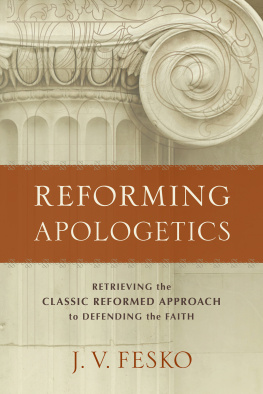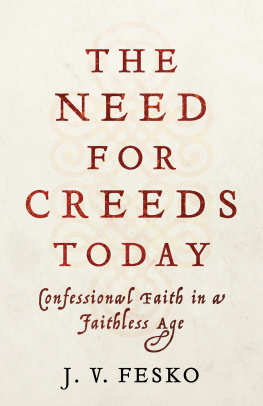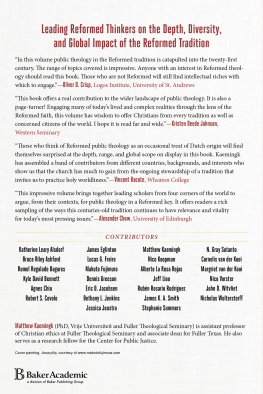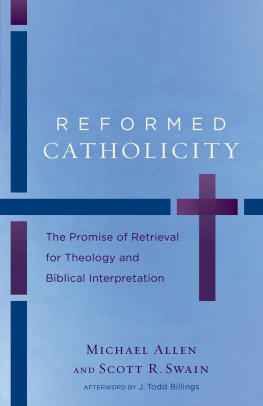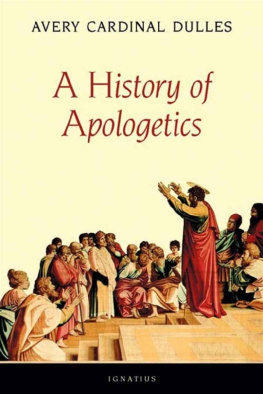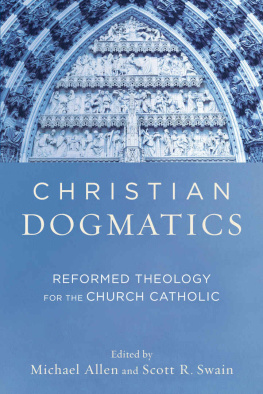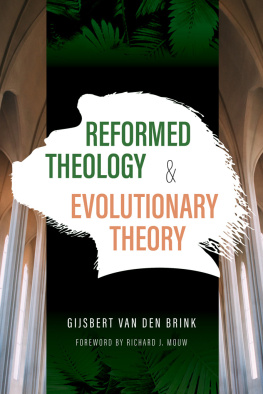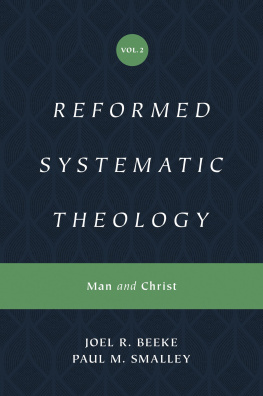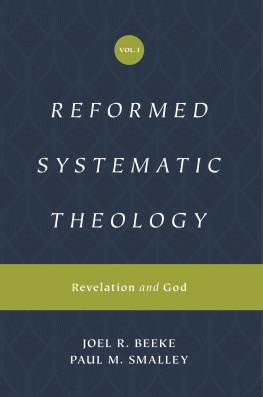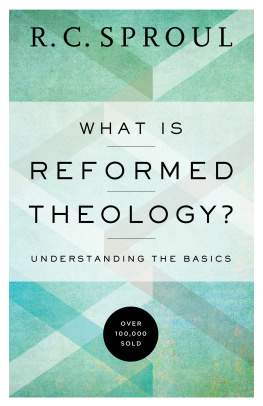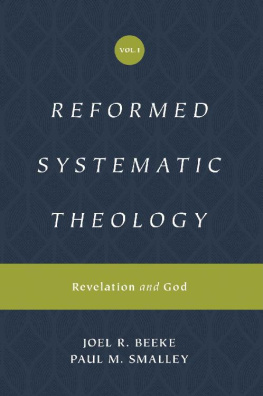1. The Light of Nature
2. Common Notions
3. Calvin
4. Thomas Aquinas
5. Worldview
6. Transcendental Arguments
7. Dualisms
8. The Book of Nature and Apologetics
Preface
The first theological book to capture my attention was Josh McDowells two-volume work, Evidence That Demands a Verdict . hodoxy has to say on issues related to apologetics, and the best of what contemporary Reformed theologians have claimed. This book represents the culmination of my thinking about these things on and off for the last twenty-five years. I write primarily from the vantage point of systematic and historical theology, my chief areas of training and study. I do not claim to be an expert in apologetics, as there are many gifted and well-trained apologists who address technical issues quite well. Nevertheless, I address theological and historical issues that pertain to the very foundations of the art and science of apologetics, and thus I seek to reform aspects of the churchs present-day apologetic enterprise.
On the whole, this book is about retrieving the classic Reformed approach to defending the faith. Categories such as common notions and the order of nature once filled the pages of Reformed works but now seldom appear. This is due, in large part, to a shift in theological convictions among contemporary Reformed theologians. There is a general distrust of natural theology. I hope to present evidence that would make people reconsider their aversion to its use in theology and apologetics. In Gods providence for his church, theologians and philosophers of the last centurysuch as Abraham Kuyper, Cornelius Van Til, and Herman Dooyeweerdwere not shy about recalibrating Reformed theology where they believed they detected shortcomings. Van Til, for example, forcefully critiqued Old Princeton theologians Charles Hodge and B. B. Warfield, and he registered his dissatisfaction with Kuyper and Herman Bavinck on a number of points with the goal of presenting a clearer exposition of Reformed apologetics. He criticized these theologians not out of pride but out of a desire to remain faithful to Scripture. This is the manner in which I present the material that follows, as I focus on and respectfully challenge some of Van Tils and Dooyeweerds claims. I intend this critique in the spirit of Van Tils festschrift, Jerusalem and Athens , in which contributors engaged in appreciative but at times critical dialogue with him. In those places where I disagree with Van Til, were he still alive, I suspect he would openly welcome the disagreement and engage in hearty dialogue. Van Til would undoubtedly agree that no one is above critique, and Scripture must always be the supreme judge by which all things in religion are determined.
I am convinced that Christians need to present their arguments from the authority of Scripture, identify false and erroneous thought embedded in unbelief, and approach unbelievers in terms of their God-defined status as covenant breakers. We must not engage unbelievers in terms of naked reason or the so-called neutral ground of bare logic. I believe Christians must approach apologetics in terms of faith seeking understanding, always mindful of the antithesis of the gospel over and against any claims of unbelief. But at the same time, my aim is to draw the churchs attention back to the book of nature, so that we can use both booksnature and Scripturein the defense of the faith.
. Josh McDowell, Evidence That Demands a Verdict , 2 vols. (San Bernardino, CA: Heres Life, 1986).
. J. V. Fesko, The Days of Creation and Confession Subscription in the OPC, Westminster Theological Journal 63 (2001): 23549, esp. 23839; J. V. Fesko and Guy M. Richard, Natural Theology and the Westminster Confession of Faith, in The Westminster Confession into the 21st Century , ed. J. Ligon Duncan, 3 vols. (Fearn, UK: Mentor, 2009), 3:22366.
. J. V. Fesko, The Covenant of Redemption: Origins, Development, and Reception (Gttingen: Vandenhoeck & Ruprecht, 2016), 18797.
Acknowledgments
The sixteenth-century poet and theologian John Donne (15721631) once wrote, No man is an island, entire of itself; every man is a piece of the continent, a part of the main. These words echo in my mind as I think of the number of colleagues and friends who have rendered their assistance along the journey that has been the writing of this book. Thanks to my faculty colleagues, students, and former students who read earlier drafts. Thanks to James Dolezal, Paul Helm, Thomas Joseph White, Keith Matthison, R. C. Sproul, Danny Olinger, David Sytsma, Richard Barcellos, Liam Goligher, Richard Gamble, John Muether, Jay Collier, Mike Allen, Stefan Linblad, Matthew Barrett, Brian Hecker, and Jeff Waddington for their helpful comments and feedback. I am also grateful to Scott Oliphint for his candid negative critique, but I respectfully dissent. I am seeking to return us not to the vomit of Rome (as he put it to me) but to historic Reformed confessional theology. I am especially thankful to Richard Muller, who read through two drafts of the book, offered excellent feedback, and provided fantastic camaraderie throughout the process. I owe great thanks to David Noe, who carefully read through my manuscript and made many helpful substantive and editorial suggestions. I am also thankful to Jim Kinney, Dave Nelson, Wells Turner, and the whole team at Baker Academic for their continual support. As much as I appreciate all the assistance from the aforementioned friends and colleagues, this work contains my own views and are not those of my colleagues or my employer, Westminster Seminary California.

